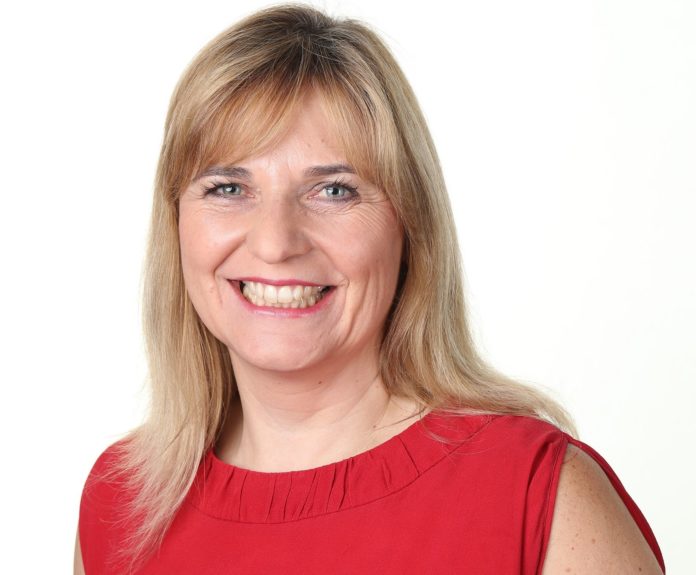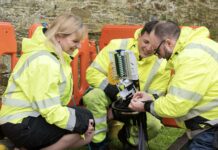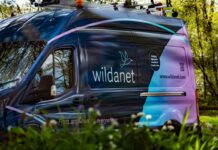The other day a colleague of mine had a text from his daughter asking for some lunch money because she didn’t have enough at school. He opened the school’s cashless catering app on his phone and sent her a fiver, in an instant. Problem solved.
It was a reminder of just how much we rely on the internet and digital connectivity in our everyday lives.
The pandemic has highlighted this even more. Having a reliable, high-speed internet connection was vital as millions of us moved to remote and flexible working, and our children were schooled from home.
It’s a theme reflected in the Government’s recent Levelling Up White Paper, which highlights how vital digital infrastructure is right across society in terms of both availability and speed, from keeping businesses going, to reducing isolation.
But the White Paper also flags the ‘significant disparities’ in the quality of broadband and mobile networks, saying rural areas are likely to experience worse digital connectivity and speeds than urban areas.
MPs from the Public Account Committee went even further in a recent report when they said that the so-called ‘digital divide’ was getting worse.
Committee Chair, Dame Meg Hillier MP, said: “We are apparently little nearer to closing ‘the great digital divide’ developing across the UK nor addressing the social and economic inequality it brings with it.”
And that inequality is real. A good internet connection is essential to almost every aspect of daily life. Not just work and education, but for accessing public services and benefits, home entertainment, and staying connected to family and friends. Without fast reliable internet, all these things become more difficult.
So why are rural areas being left behind by the digital revolution?
The problem, MPs say, is an over-reliance on the industry’s big hitters who have focused on the less costly and easier to reach urban areas of the UK when it comes to building their high-speed networks. That means thousands of rural communities are having to make do with slow speeds and poor service, or sometimes no internet at all.
The Government recognises this and last year launched Project Gigabit. This is a £5 billion subsidy scheme to help private companies bring next generation internet to hard-to-reach areas. The target is to cover 85% of the country by 2025. The Levelling Up White Paper makes a further commitment, saying the UK will have nationwide gigabit-capable broadband by 2030.
But there are still concerns from MPs that people living in the hardest to reach areas will be pushed to the back of the queue. And there are questions about whether the large internet providers have either the appetite or the technological solutions to cater for more remote areas.
There is hope, however. In recent years the market has seen the emergence of a small army of independent broadband providers or ‘alt-nets’ (which stands for ‘alternative networks’) who are quietly getting on with connecting their communities and improving the speeds offered.
These businesses are proving nimble at meeting local needs and are using novel technology to problem-solve and get people connected, rather than pass them by.
They are also attracting investment – research published last year suggests alt-nets will invest nearly £12 billion in broadband fibre networks in the UK by 2025.
Among those businesses is Wildanet, based in Liskeard in Cornwall. We are using £50 million of private investment to bring ultrafast internet access to the left behind homes and businesses in rural and hard to reach areas across Cornwall and the south west.
And we’re taking a hybrid approach to solving connectivity issues. That’s because our region’s rugged typography needs more than the one-size-fits-all solution that has left so many rural communities in the slow lane of the broadband superhighway.
So at Wildanet we’re building a brand new fibre network blended with the very latest in gigabit wireless technology. We want to find ways to connect customers, not leave them behind because it’s too hard.
And we’ll be bidding into the Government’s Project Gigabit programme later this year. Cornwall is among the first wave of areas to benefit from financial support targetting almost 54,000 homes. We believe Wildanet is uniquely placed to connect those communities.
At the heart of tackling digital inequalities is providing fast and reliable broadband to every individual, business and community, wherever they are.
No-one shoud be left behind. And yet there are still over 220,000 people in the south west who have never used the internet. More than half of them are in Devon and Cornwall. For some people it will have been their choice not to go online. But for many it won’t. That has to change.
Helen Wylde is chief executive of Cornwall-based internet producer Wildanet, www.wildanet.com









